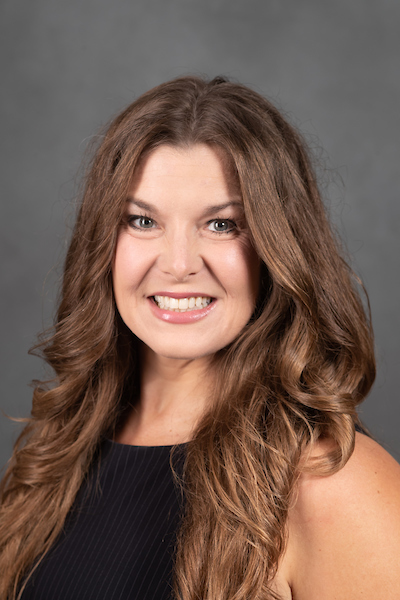APSU professor’s Ed.D. research highlights importance of goal-setting in increasing BSN-prepared workforce
By: Megan Simpson May 2, 2024
 CLARKSVILLE, Tenn. - A recent study by Dr. Terri A. Clark, associate professor of
nursing at Austin Peay State University, emphasizes the importance of healthcare institutions
setting goals to increase the percentage of bachelor's degree-prepared registered
nurses (RNs) in the workforce.
CLARKSVILLE, Tenn. - A recent study by Dr. Terri A. Clark, associate professor of
nursing at Austin Peay State University, emphasizes the importance of healthcare institutions
setting goals to increase the percentage of bachelor's degree-prepared registered
nurses (RNs) in the workforce.
Ed.D. Experience Prepares Professor for Research
Clark's study was completed as part of her dissertation for the Eriksson College of Education’s Ed.D. program. With nearly 30 years of experience in various nursing roles and nearly 20 years as an educator, Clark found the program to be "the perfect fit" for her professional growth.
"This program fully prepared me to confidently participate in scholarly research, accreditation and course development," she said. "It met me where I was and helped me grow."
Clark (‘22) never thought she would pursue a doctorate but “ended up really enjoying the journey” that allowed her to dig deeper into her research interests.
Study Identifies Strategies to Boost Bachelor of Science in Nursing-Prepared Nurses
Clark’s research, published in the Journal of Christian Nursing, investigated barriers to requiring a Bachelor of Science in Nursing (BSN) degree from the perspective of nurse leaders in Tennessee hospitals and long-term care facilities.
The study found that facilities with specific goals and plans to increase the number of BSN-prepared nurses had a significantly higher proportion of BSN staff compared to those without such objectives. While RNs can be hired with an associate degree, Clark said there are proven benefits to continued education.
“Care provided by BSN-prepared nurses has been linked to lower patient mortality rates and more positive patient outcomes,” she said. “So this research is important to the entire healthcare community.”
The mixed-methods study, involving 89 nurse leaders, identified the following barriers to obtaining a BSN: nurses not perceiving value in higher degrees, staffing challenges and insufficient funds for incentives. Top strategies used by facilities included tuition reimbursement, clinical ladders and partnering with academic institutions.
As the RN to BSN program facilitator at Austin Peay, Clark is invested in educating the nursing workforce one degree at a time.
"If more BSN-prepared nurses can decrease patient mortality rates and improve patient outcomes, then this is definitely something worth supporting," Clark said.
The full study, "Increasing the BSN-Prepared Nursing Workforce: Perceived Barriers and Strategies" is available in the Journal of Christian Nursing Vol. 41, Issue 2.
Explore APSU's Ed.D. Program
Austin Peay State University's Ed.D. program offers online and HyFlex courses. With five concentrations, including the nurse educator track, the program attracts a diverse range of professionals seeking to advance their careers.
“Our nurse educator concentration classes are taught by nursing faculty with significant experience in clinical settings and the classroom,” said Dr. Andrea Lee, education assistant professor and Ed.D. program coordinator.
Applications are being accepted for Fall 2024. Other students enrolled in the Ed.D. program come from various backgrounds, including K-12 education, higher education and educational research.
To learn more about how APSU's Ed.D. program, visit apsu.edu/education/programs-of-study/edd.